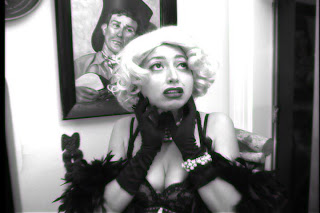Via a local newspaper last Friday I was introduced to the reactionary thought of Andrew Keen (a self-proclaimed “leading contemporary critic of the Internet”) who is doing a book tour through Europe to launch his 2007 book The Cult of the Amateur in which – among other things – he states that “real” writers do not blog. A conspirator of thought of Keen, Marshall Poe, states that Wikipedia is not an encyclopedia, but a repository of common knowledge.”
Both Andrew Keen and Marshall Poe completely miss the point of blogging, Wikipedia and the nature of the internet in general. Even more, it’s not just that they don’t understand. The fact is is that they are fundamentally and ethically wrong.
1) A. Keen and M. Poe underestimate the importance of information access in the third and fourth worlds (and poor people everywhere) to a repository of books, encyclopedias and common knowledge:
Extremely knowledgeable people are paraphrasing information from a canonical list of books into Wikipedia, towards a new and yet unseen educational perennialism . People in such countries as Chad, Burkina Faso now have access to verifiable info and would not have it, if it were not for Wikipedia.
2) A. Keen and M. Poe underestimate the importance of common knowledge.
Common knowledge is good. We need common ground when discussing subjects. An encyclopedia=common knowledge copied from books (or from expert’s own minds). When Marshall Poe states that “Wikipedia is … not an encyclopedia, but a repository of common knowledge,” he forgets that people such as David Hume before him stated that “nothing is more usual than for philosophers to encroach on the province of grammarians, and to engage in disputes of words, while they imagine they are handling controversies of the deepest importance and concern.”
3) A. Keen and M. Poe fail to see what makes Wikipedia an interesting place for people who do have access to physical libraries:
For those of us who live in the First World, who do have access to the physical books, Wikipedia discloses info on the nature of knowledge and the social construction of knowledge via such features as the “what links here” and “disambiguation” pages.
I do not feel that strongly about points 2 and 3, which is intellectual nitpicking which makes no difference to the stomachs of people in the world, but point one, information access in the third and fourth worlds, is something I feel very strongly about and leads me to conclude that Keen and Poe do not have their hearts in the right places.






